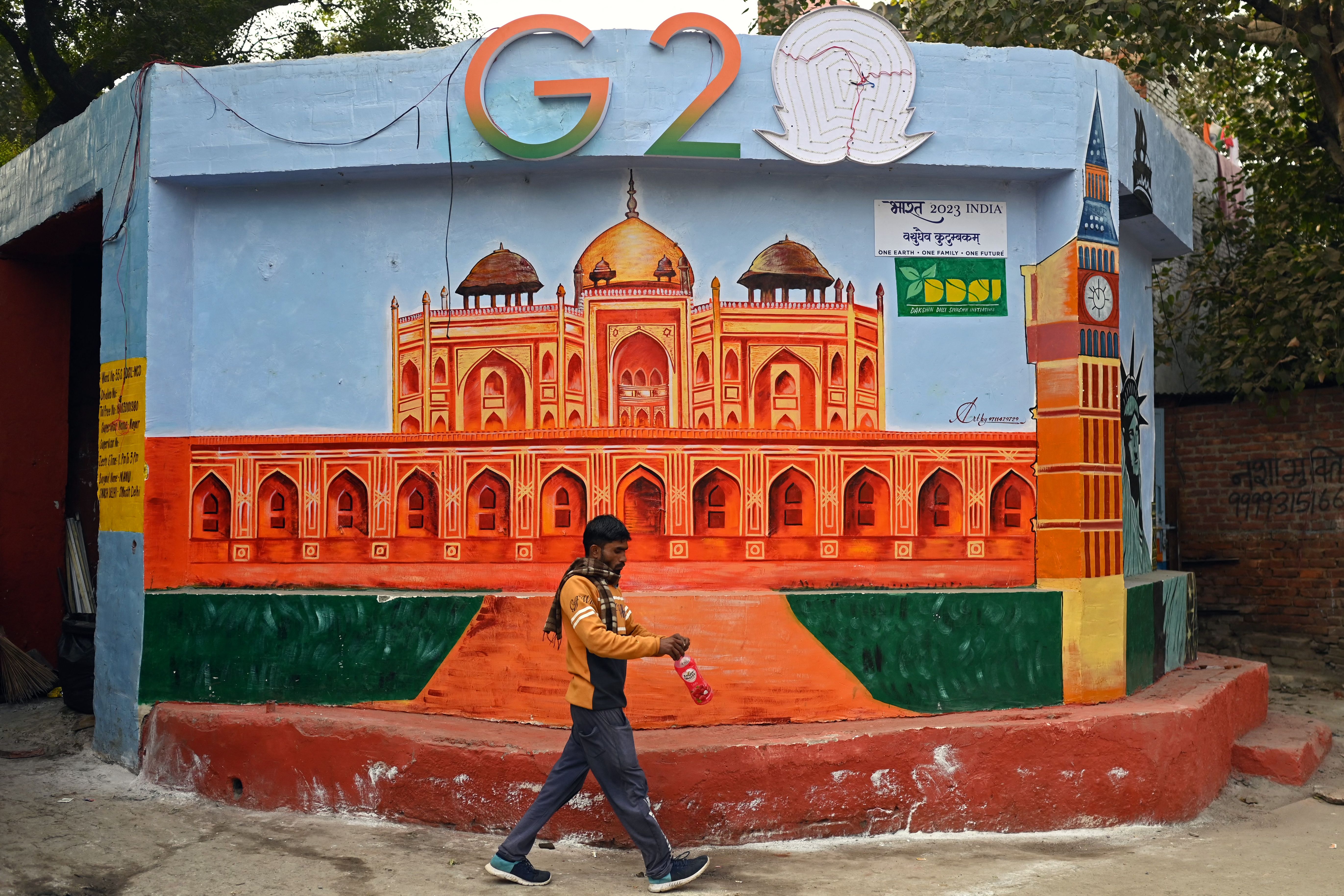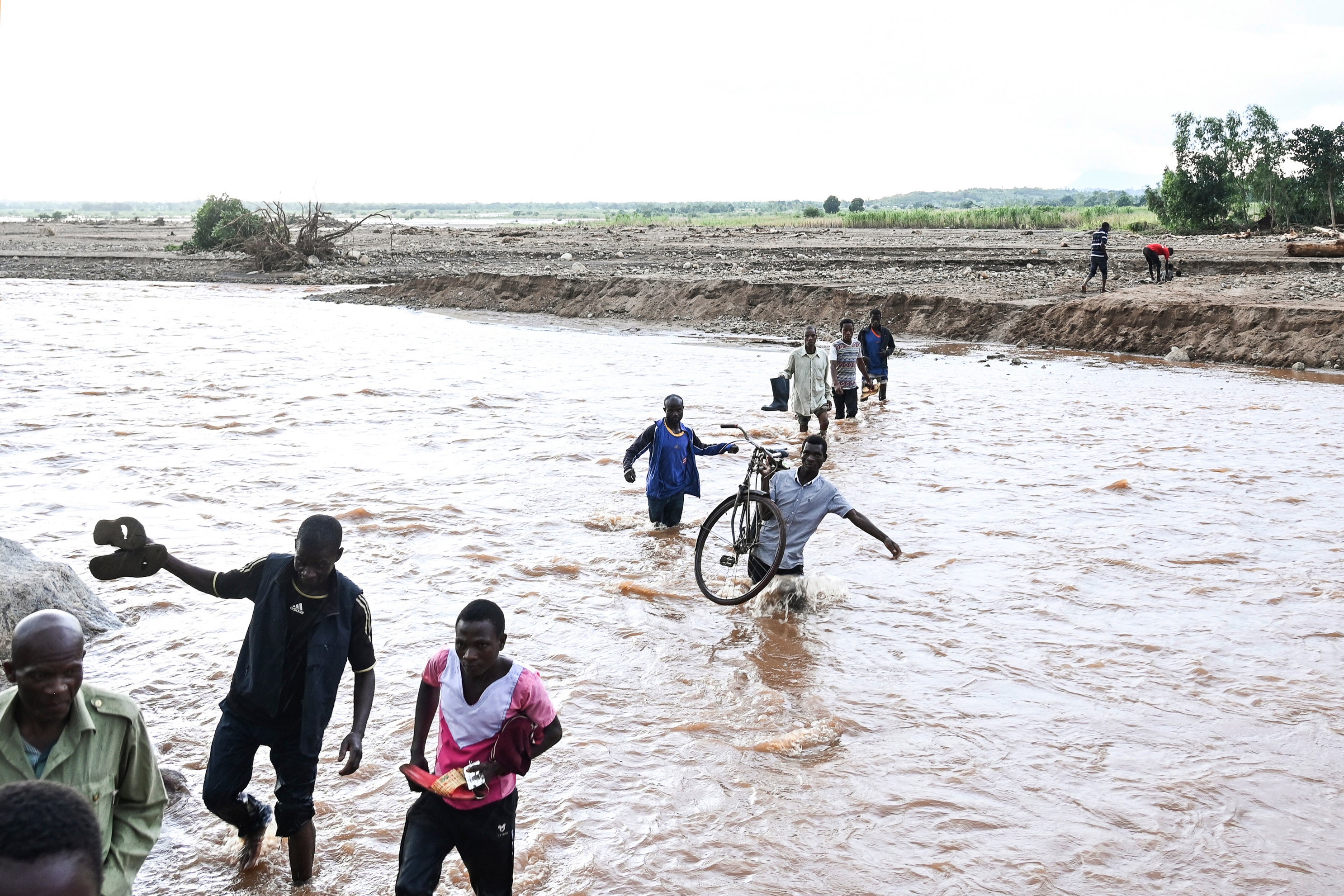G20 nations raked in $50bn in debt repayments from poor countries since Covid, report finds
Poor nations are forced to fill the ‘coffers of big banks and polluters’ instead of protecting people’s homes, experts say

Your support helps us to tell the story
From reproductive rights to climate change to Big Tech, The Independent is on the ground when the story is developing. Whether it's investigating the financials of Elon Musk's pro-Trump PAC or producing our latest documentary, 'The A Word', which shines a light on the American women fighting for reproductive rights, we know how important it is to parse out the facts from the messaging.
At such a critical moment in US history, we need reporters on the ground. Your donation allows us to keep sending journalists to speak to both sides of the story.
The Independent is trusted by Americans across the entire political spectrum. And unlike many other quality news outlets, we choose not to lock Americans out of our reporting and analysis with paywalls. We believe quality journalism should be available to everyone, paid for by those who can afford it.
Your support makes all the difference.Debt-stricken nations that are also highly vulnerable to the climate crisis have paid a staggering $50bn (£39bn) to G20 creditors since the onset of the Covid-19 pandemic, according to a new report.
The analysis, conducted by the International Institute for Environment and Development (IIED), sheds light on the financial burden faced by the world's poorest and most climate-vulnerable countries, as they grapple with repaying debts to the 20 richest nations of the world.
The report, based on the latest data from the World Bank, comes ahead of the upcoming meeting of G20 finance ministers and central bank governors in Gandhinagar, India.
The analysis reveals that the payments made by 58 Least Developed Countries (LDCs) and Small Island Developing States (SIDS) reached $21bn (£16bn) in 2022, marking an increase from $14bn (£11bn) in 2021 and $13bn (£10.3bn) in 2020.
The rising debt repayments mean that the world’s poorest countries, which also face the biggest risks from the worsening climate disasters, are trapped in an ongoing cycle of financial burden.
Amid globally record-shattering temperatures this year and intensifying extreme weather events such as cyclones, floods and droughts, there are increased calls now to spend more on climate resilience, adaptation and mitigation. But with rising debts, these countries are forced to spend more on repayments than on protecting lives.
The report says that despite these significant repayments in the last two years, G20 countries still held a cumulative bilateral debt of $155bn (£120bn) from LDCs and SIDS in 2021.
Money that could be spent protecting people’s homes from floods or ensuring their access to water during drought, as well as running schools and hospitals, is instead filling the coffers of big banks and polluters.
The economic strain on these countries has worsened due to various factors, including the global economic slowdown triggered by Russia's invasion of Ukraine, the Covid-19 pandemic, and the rise in global prices and interest rates, the report states. This heightened debt burden has pushed many nations into critical positions, with some on the verge of default.
The data also reveals that G20 countries hold substantial amounts of debt through multilateral institutions such as the World Bank and European Development Fund.
In addition to bilateral deals, these organisations, in which the G20 are stakeholders, held an additional $131bn of debt from LDCs and SIDS in 2021. The overall figures are expected to be even higher due to incomplete data. Furthermore, the analysis does not account for the debt held by private creditors based in G20 countries, including banks.

The institute is urging the G20 to establish a fairer financial system that addresses the needs of those at the forefront of the climate crisis. Dr Tom Mitchell, executive director of IIED, called the debt burden an “injustice” for the people of the least developed countries who have a negligible role in creating the climate crisis.
“The huge debt burdens on some of the countries most at risk from climate change means they are forever paying back interest to much wealthier nations who have done the most to cause the climate crisis,” Mr Mitchell said. “This is an injustice.”
“Money that could be spent protecting people’s homes from floods or ensuring their access to water during drought, as well as running schools and hospitals, is instead filling the coffers of big banks and polluters.
“The G20 must build on the political goodwill established at last month’s Paris finance summit to overhaul our broken international system, which is still based on a legacy of colonisation and 1940s thinking.”
IIED report proposes several measures that the G20 could adopt, including debt cancellations or debt swaps for climate and nature, which refers to forgiving or restructuring of loans in exchange for climate adaptation measures.
There’s an increased call for the world’s largest polluters to take responsibility for the worsening impacts of the climate crisis. The G20 countries include the world’s biggest economies that have either been the biggest polluters since the Industrial Revolution or have become one in recent decades, such as India and China.
The world’s poorest countries have contributed the least to the climate crisis, yet they face the greatest risks from its consequences, including cyclones and droughts. In contrast, the G20 includes countries that are responsible for the highest levels of historical and current greenhouse gas emissions, with many of them having attained economic power through conquest and colonisation.






Join our commenting forum
Join thought-provoking conversations, follow other Independent readers and see their replies
Comments